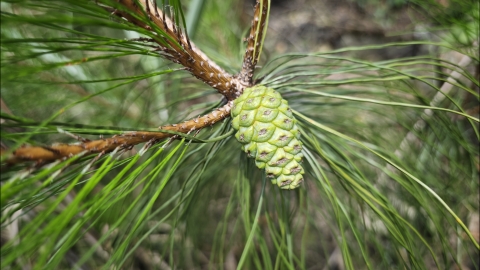What are the adverse reactions of pine needle oil?
Generally, adverse reactions to pine needle oil include skin allergy, gastrointestinal discomfort, effects on liver and kidney function, blood pressure fluctuations, respiratory irritation, etc. Detailed analysis is as follows:

1. Skin Allergy
Pine needle oil may contain allergenic components, such as aromatic compounds and turpentine acid, which may cause allergic reactions in some individuals. Skin exposure or ingestion of pine needle oil may lead to allergic symptoms such as rash, itching, and swelling.
2. Gastrointestinal Discomfort
Pine needle oil may irritate the gastrointestinal tract, causing symptoms such as stomach discomfort, diarrhea, nausea, and vomiting. These symptoms typically appear within a few hours after ingestion and are usually short-lived.
3. Effects on Liver and Kidney Function
Long-term or excessive use of pine needle oil may affect liver and kidney function, potentially leading to abnormalities. Therefore, patients with impaired liver or kidney function should exercise special caution.
4. Blood Pressure Fluctuations
Pine needle oil may influence blood pressure, causing either an increase or decrease. Patients with hypertension or hypotension should closely monitor their blood pressure when using pine needle oil.
5. Respiratory Tract Irritation
Inhaling volatile compounds from pine needle oil may irritate the respiratory tract, causing symptoms such as coughing, wheezing, and difficulty breathing. Individuals with pre-existing respiratory conditions should use it with caution.
When using pine needle oil, it is essential to follow proper usage guidelines, understand your personal health status, and consult healthcare professionals when necessary, to ensure safe and effective use while avoiding adverse reactions.








